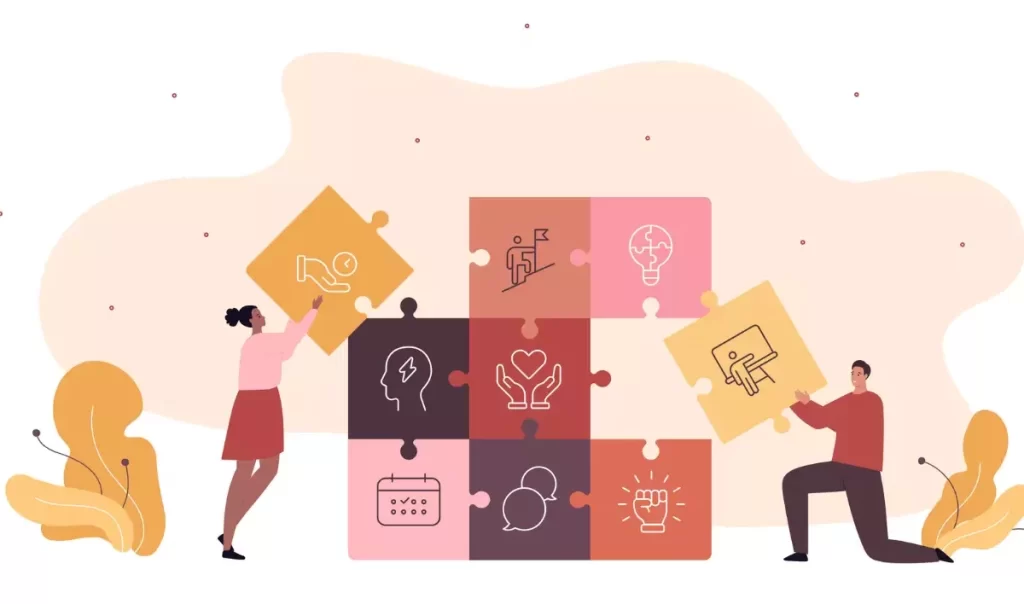Adaptability has become a vital skill for employability, not just a “soft skill.” It’s about adjusting quickly and efficiently to changes in your work environment. The concept of what makes a competent employee is changing. It’s no longer just about having the right skills, experience, or education. Employers now look for people who can quickly adapt, learn new things, and adjust to organisational development. This shift is due to the fast-paced and unpredictable nature of today’s workplace, where technology, economic changes, and global events constantly impact industries and jobs.
The days of lifetime employment at a single skill are over. Today, forward-thinking employers focus on skills-based hiring, prioritising a person’s abilities and competencies over degrees and job titles. In this rapidly changing work environment, adaptability has become essential. Whether you’re dealing with a layoff, a company reorganisation, or changing work priorities, adjusting and adapting is key to succeeding in today’s workplace.
The Rise of Adaptability as a Core Skill
Adaptability is no longer just a desirable trait but an essential one. Organisations seek individuals who can thrive in uncertain environments, embrace change, and find innovative solutions to new challenges. People increasingly consider this adaptability a more reliable indicator of long-term success than traditional qualifications alone. As companies undergo rapid transformations, those who can quickly realign their skills and mindset to new realities are more likely to succeed and grow within their roles.
Moreover, adaptability extends beyond just adjusting to new tasks or technologies. It encompasses a broader set of skills, including emotional intelligence, resilience, analytical skills, and the capacity to navigate interpersonal dynamics in times of change. Adaptable employees are often more open to feedback, willing to take on new challenges, and capable of maintaining their composure under pressure.
What to Do If Your Boss Resigns or Gets Fired?
A boss’s sudden departure is one of the most challenging situations that can test an employee’s adaptability. The impact of your boss’s resignation or firing on your role and the team can be significant. If you love your job and are pleased with the current circumstances, feeling anxious about future changes is natural. However, it is also an opportunity to show your adaptability and value to the company.
Here’s how to navigate this transition effectively:
- Stay Calm and Professional: It’s easy to let emotions take over, but maintaining a calm and professional demeanour is crucial. It will help you stay focused and set a positive example for your colleagues.
- Seek Clarity in the Future: Contact your HR department or higher management to understand the following steps: Will there be an interim boss? Are there any changes in reporting structures? Clarity will help you adjust to the new situation more smoothly.
- Continue Delivering High-Quality Work: Now more than ever, it’s essential to continue performing at your best. It is a chance to showcase your commitment and adaptability, which can position you for new opportunities during this transitional period.
- Build Relationships with Other Leaders: Strengthen your connections with other leaders within the organisation. It can offer you extra assistance and understanding, potentially leading to opportunities for professional advancement.
- Reflect on Your Own Goals: Take this time to reassess your career goals. Is there a new direction you’d like to take? Are there skills you need to develop to stay adaptable? Invest in your professional development during this time of change.
How Life and Leadership Coaching Can Help
In times of uncertainty, such as when a boss leaves or adapting to changes in the organisation seems challenging, seeking guidance from a life or leadership coach can be incredibly beneficial. Coaching provides a structured environment to explore feelings, set goals, and develop strategies to navigate change effectively.
Key Benefits of Coaching During Transitional Periods:
- Personalised Support: A coach can offer guidance and support tailored to your needs and circumstances.
- Goal Setting: They can help you set clear career goals and develop a plan to achieve them.
- Skill Development: With their coaching, you identify areas for improvement and develop the skills you need to succeed.
- Confidence Building: A coach can help you build confidence in your abilities and overcome self-doubt.
- Stress Management: They can provide strategies for managing stress and maintaining a work-life balance.
By embracing adaptability and seeking the support of a life and leadership coach like Usha Nagrani, you can position yourself for success in today’s rapidly changing workplace. Remember, the ability to adapt is not just a skill; it’s the new employability index.

Usha Nagrani, an HR Leader turned ICF Executive Coach, empowers senior management professionals and business leaders to achieve breakthroughs as expats, build cross-cultural teams, and navigate the exciting journey of career acceleration.

